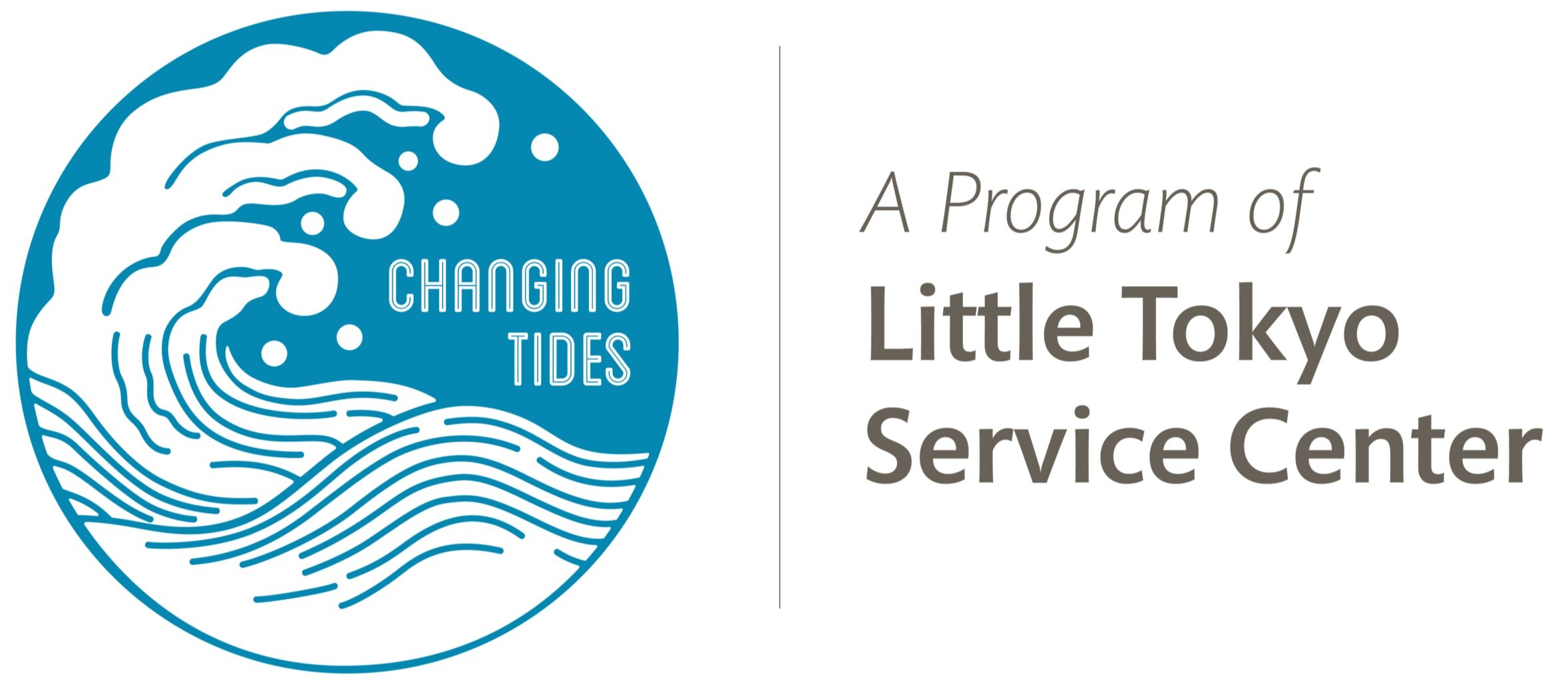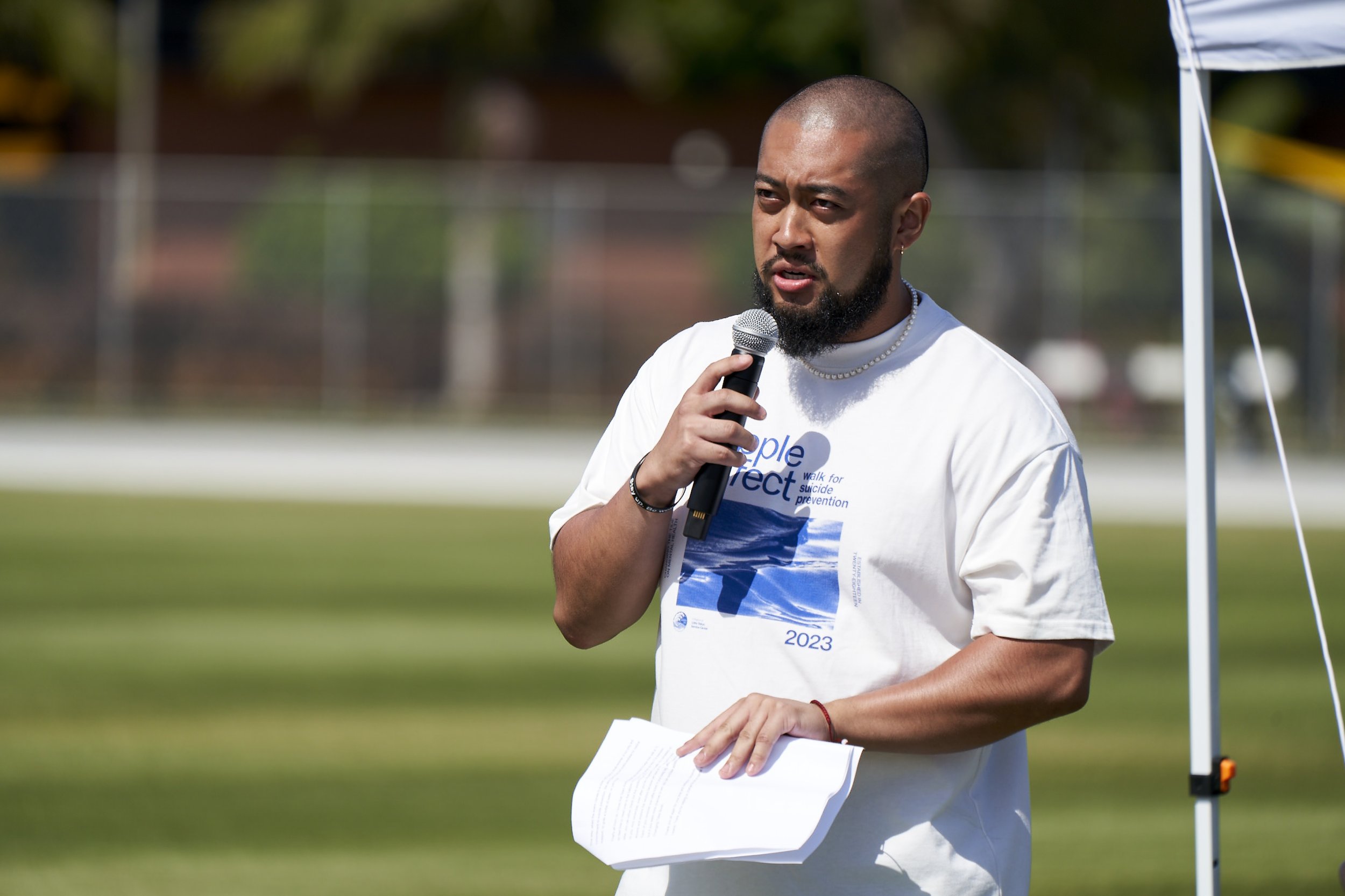September Marks Suicide Prevention Month
*Content warning: discussion of suicide
The first time suicide affected me was my freshman year of college. I had just started training for my new job at the school gym, and I checked Instagram while leaving my shift to see many “Rest in Peace” posts for a high school classmate of mine. While I wasn’t particularly close to him, his passing left an impression on me. Why did he die by suicide? Who did he tell? Is his family okay? Could I have helped prevent this? I sat on the bus on my way to my apartment with so many questions and no idea about how to get answers for them, I just sat on the bus, frozen, confused, and hurt.
Program Coordinator Matthew Yonemura speaking at the 2023 Ripple Effect: Walk for Suicide Prevention
6 years later and I’m working for Changing Tides, a mental health program of Little Tokyo Service Center with the goal of destigmatizing mental health. I’ve encountered a lot of stories of loss due to suicide, met family members who lost their young son or daughter to suicide, and I’ve worked with the Changing Tides team to create resources and events to promote suicide awareness and prevention. Here’s the first thing I learned: don’t be afraid to say the word “suicide”.
The word “suicide” is scary, and we try to remove this word from our vocabulary as much as possible, but the simple truth is that if we want to address suicide, we need to say the word too. It is especially important for the AANHPI community to address this topic head on, as suicide is the leading cause of death for AANHPI folks between 15-24 years old. It took me a long time to learn how to address this topic directly, but I learned this lesson through a QPR training that our CT staff and volunteers did back in 2022. This is the same training that Changing Tides offers through CT Anchor, our free suicide prevention training that teaches “Question, Persuade, Refer”, the three simple steps in the QPR Institute’s 1-2 hour long training workshop.
It can be mentally taxing to work in the mental health field. Through it all, the difficult times pay off when we are able to bring community together at events like our Ripple Effect: Walk for Suicide Prevention, where the community comes together to honor those we have lost to suicide and remind ourselves that we have the ability to uplift each other. The ripple effect of change can begin when we tell our younger sibling that they can always ask us for help, when you check in with your friends to ask how they are REALLY doing, and when we check in with ourselves and ask for help when we need it.
The Changing Tides Crew and Crew Alums at the 5th annual Changing Tides Gala in 2023
Mental health is complicated and it can be scary to talk about, but when we work together we really canchange the tide on mental health. If you or anyone you know are struggling, please call LTSC’s Social Services at 213-473-3035.
Resources:
CT Stream, therapy stipend program for individuals between 16-29 years old to receive up to 10 free sessions
CT Anchor, our collaboration with the QPR institute to provide free suicide prevention trainings for folks of all ages
The Changing Tides Podcast, where we invite guests from a variety of professions, backgrounds, & experiences to chat about their mental health journeys.
Written by Matthew Yonemura



